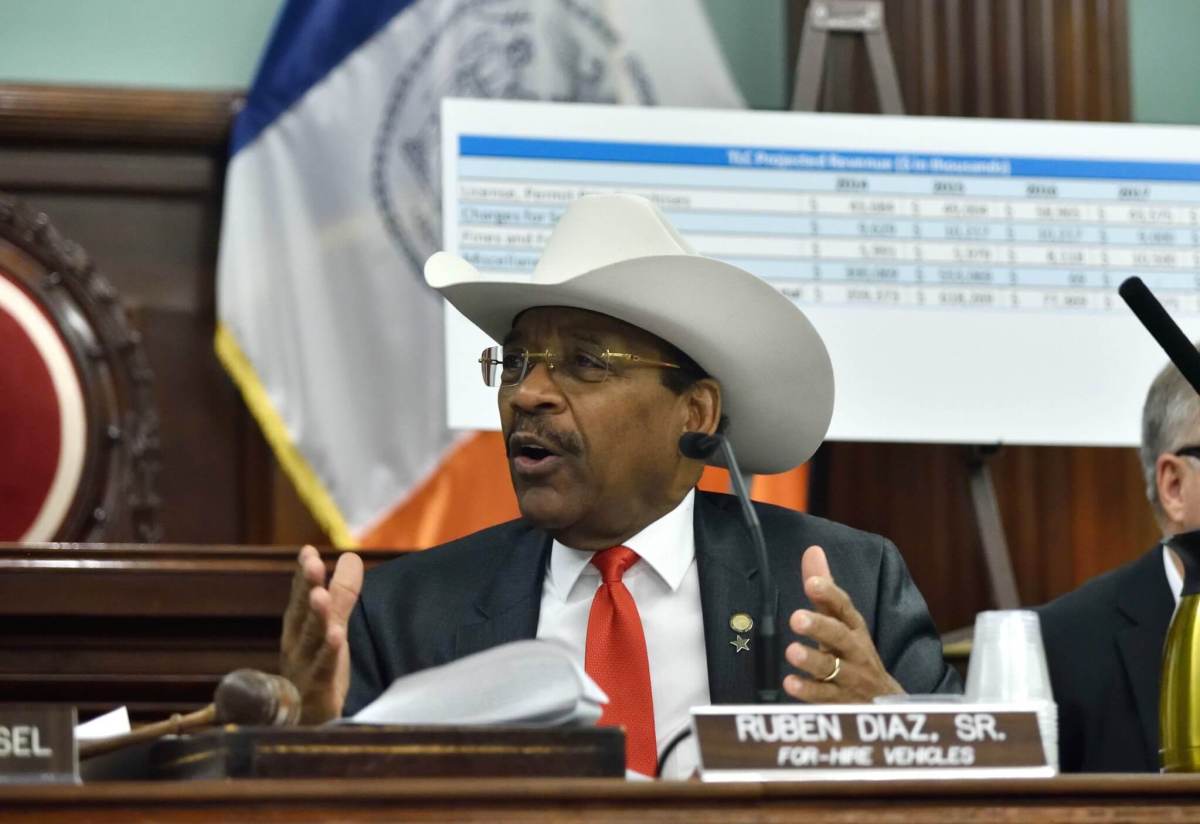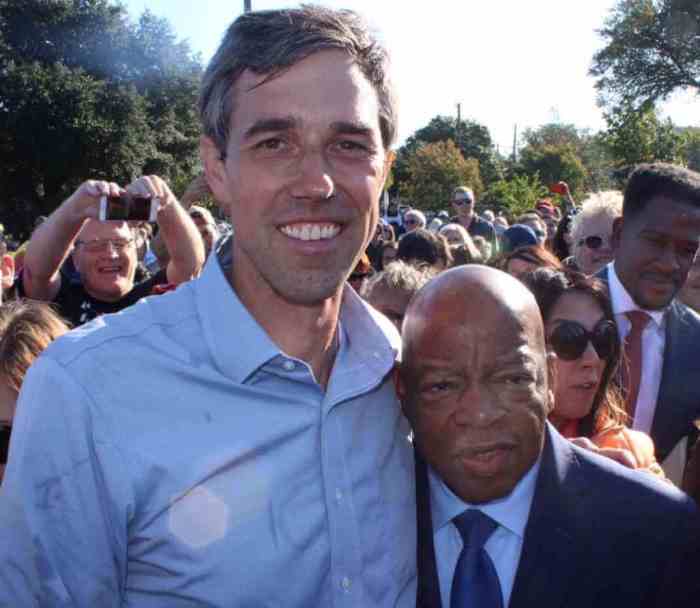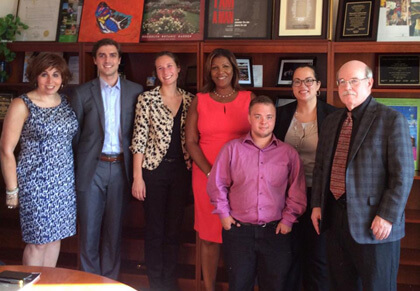What does it mean to be a Democrat in New York City?
“I do like Donald Trump,” Bronx Democrat Ruben Diaz, Sr., then a state senator, said in a 2016 interview with the Washington Post. “He’s like me, making enemies everywhere he goes.”
On paper, Diaz, a staunch opponent of same-sex marriage and women’s reproductive rights, is a Democrat. But in a progressive City Council and with a mayor who first won office in 2013 running as arguably the most left-leaning in the Democratic field, his party label and his political leans are at odds with each other.
So what does it mean to be a Democrat in New York City?
Bigoted city lawmaker has stood up for Trump, Giuliani, and others — what’s he doing in the Democratic primary?
For Diaz, who has spent decades railing against same-sex marriage rights and once said the 1994 Gay Games held in New York would lead to the spread of AIDS and “wider acceptance of homosexuality by young people,” it seemingly means that he is willing to use his power and influence as an elected official to prop up Republicans across different levels of government ranging from presidents to governors to senators.
For Diaz, it means praising Trump, welcoming Republican Senator Ted Cruz to the Bronx, and endorsing the campaigns of Republican Rudy Giuliani for mayor, George Pataki for governor, and Rick Lazio for United States Senate in his unsuccessful bid to thwart Hillary Clinton in 2000.
For Diaz, it means supporting Ed Koch over David Dinkins in the 1989 Democratic primary competition for mayor and then backing Giuliani over Dinkins in that year’s general election.
For Diaz, it means supporting longtime Republican Senator Al D’Amato of New York in his 1992 reelection bid before opposing him because D’Amato was okay with letting gay men and lesbians serve openly in the military, according to a 1993 Newsday piece.
For Diaz, it means supporting Republican Rob Astorino for governor in 2014, citing the former Westchester County Executive’s opposition to women’s reproductive rights. Astorino also expressed his opposition to same-sex marriage, which his incumbent Democratic opponent, Andrew Cuomo, had steered to enactment three years before.
For Diaz, it means complaining that the City Council is controlled by the LGBTQ community and subsequently asking this reporter last year why he would have to support any LGBTQ rights initiatives as a councilmember.
To be sure, there are other Democrats on the Council who are also out of step with the prevailing political mood there. Chaim Deutsch of Brooklyn, who is challenging incumbent US Representative Yvette Clarke, shockingly voted against banning conversion therapy in 2017 and has opposed other queer rights initiatives. And Fernando Cabrera, like Diaz from the Bronx, traveled to Uganda in 2014 and defended that nation’s leaders in the immediate aftermath of their passing a draconian criminalization bill targeting the gay and lesbian community.
But with the longevity of his political career, dating back to the 1990s, and the frequency with which his inflammatory outbursts occur, Diaz is in something of a class by himself.
Bronx United Political Action Committee, which formed with the purpose of opposing Diaz’s candidacy for Congress, is highlighting many of those examples of the 77-year-old’s decades-long history of standing up for GOP candidates at a time when he is seeking to represent the most Democratic district in America.
“Whether it’s supporting and defending Donald Trump, proudly parading Ted Cruz around the Bronx, endorsing Rudy Giuliani, or praising Sarah Palin, Ruben Diaz, Sr., has spent his entire career backing Republicans who want to roll-back healthcare, end a woman’s right to choose, oppose marriage equality, and attack immigrants,” Bronx United said in a written statement to Gay City News. “Diaz Sr. would be Donald Trump and Mike Pence’s favorite New York City politician and if he gets to Washington would work hand in hand with them to pass their anti-Bronx conservative agenda.”
Out gay Councilmember Ritchie Torres, a leading contender in the race for the 15th district and a top rival of Diaz, has also aimed to paint his opponent as a “Trump Republican” who would carry the GOP’s water should he be elevated to Capitol Hill. That messaging is clearly an election season strategy to convince voters that Torres’ better-known opponent is only a Democrat in name but in fact is a Republican, but there is also ample truth to it: After all, Diaz hasn’t just acted like a Republican — he previously ran as both a Republican and a Democrat for State Senate in 2008, according to the New York Sun.
So, then, what does it mean to be a Democrat in New York City?
For Diaz, aiming to represent the most Democratic district in America, the answer is simple: It means standing with the Grand Old Party when it matters the most.
To sign up for the Gay City News email newsletter, visit gaycitynews.com/newsletter.





























